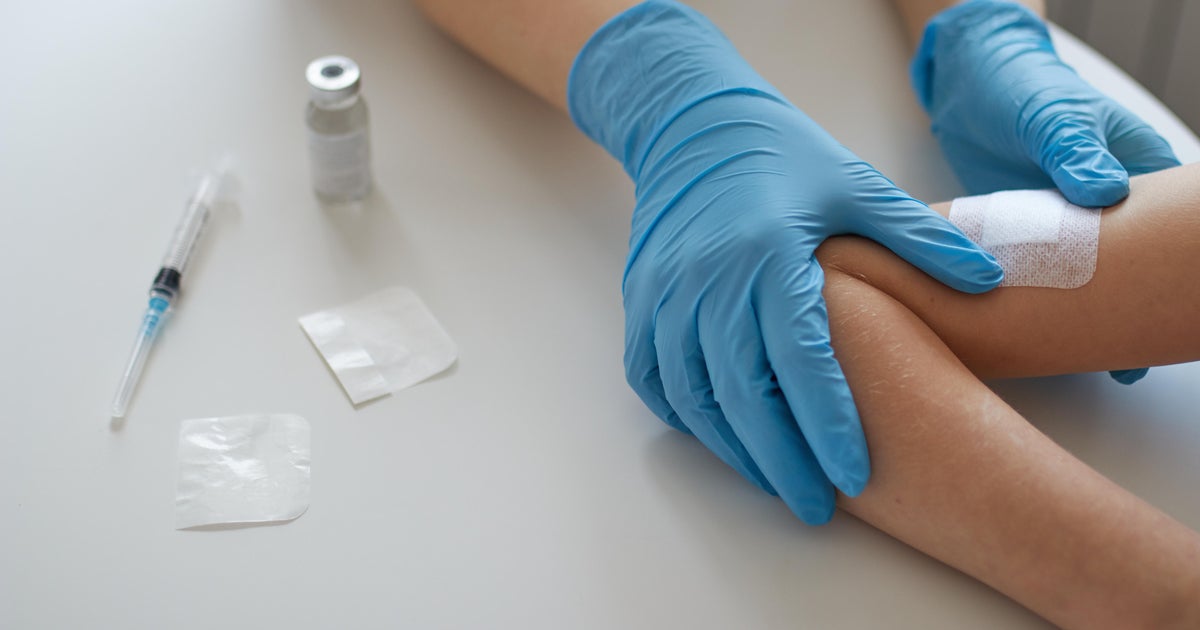AstraZeneca may have "included outdated information" in COVID-19 vaccine trial report, U.S. says
AstraZeneca may have used "outdated information" when it released data from a late-stage trial of its COVID-19 vaccine early Monday, federal officials say. The Data and Safety Monitoring Board (DSMB) said late in the day it "was concerned" about the information the British drug maker made public about the large-scale U.S. trial of the vaccine it developed along with Oxford University.
The National Institute of Allergy and Infectious Diseases (NIAID) said "The DSMB expressed concern that AstraZeneca may have included outdated information from that trial, which may have provided an incomplete view of the efficacy data. We urge the company to work with the DSMB to review the efficacy data and ensure the most accurate, up-to-date efficacy data be made public as quickly as possible."
AstraZeneca reported Monday that its COVID-19 vaccine provided strong protection among adults of all ages in a long-anticipated U.S. study, a finding that could have helped rebuild public confidence in the shot around the world and move it a step closer to clearance in the U.S.
AstraZeneca said in a statement on Tuesday that the data released on Monday "were based on a pre-specified interim analysis with a data cut-off of 17 February. We have reviewed the preliminary assessment of the primary analysis and the results were consistent with the interim analysis."
The drug maker said it was "completing the validation of the statistical analysis" and would "immediately engage with the independent data safety monitoring board (DSMB) to share our primary analysis with the most up to date efficacy data. We intend to issue results of the primary analysis within 48 hours."
Dr. Anthony Fauci, director of the U.S. National Institute of Allergy and Infectious Diseases and the chief medical advisor to President Biden, voiced confidence in the AstraZeneca vaccine itself on Tuesday, but said the pharmaceutical company had put out information that "was somewhat outdated in the press release, which is somewhat misleading."
He told ABC News that the NIH had told AstraZeneca "we wanted the press release to be updated," and called the information issued by the company "rather unfortunate, because it is a good vaccine."
"It was an unforced error," said Fauci. "This was likely a really good vaccine, and this kind of thing does nothing but casts some doubt about the vaccine and contributes to some hesitancy. When you look at it the data is good."
CBS News medical contributor Dr. David Agus said that while there were 141 coronavirus "events reported in the clinical trial," there were apparently more possible or probably COVID-19 cases detected in participants over several weeks after the data-gathering timeframe for the trial. If included, those cases would bring down the overall vaccine efficacy estimate from what AstraZeneca reported.
"This is the dominant vaccine in the world, and we just questioned the data around it again," he said, noting recent concerns in Europe about possible links between the AstraZeneca vaccine and blood clots. European and British regulators, along with the World Health Organization and AstraZeneca itself, have all closely examined the data on clots and concluded that the vaccine is safe and effective and, there's no data to suggest it causes clotting.
AstraZeneca said on Monday that the data from its U.S. study, involving about 30,000 people, showed its vaccine to be 79% effective at preventing symptomatic cases of COVID-19 — including in older adults. There were no severe illnesses or hospitalizations among vaccinated volunteers, compared with five such cases in participants who received placebo shots — a small number, but consistent with findings from Britain and other countries that the vaccine protects against the worst of the disease.
AstraZeneca also said the study's independent safety monitors found no serious side effects, including no increased risk of rare blood clots like those identified in Europe, a scare that led numerous countries to briefly suspend vaccinations last week.
The company intended to file an application with the Food and Drug Administration in coming weeks. There was no word on whether that application would be delayed due to the DSMB's concerns.
The government's outside advisers will publicly debate the evidence before the agency makes a decision. Authorization and guidelines for use of the vaccine in the United States will be determined by the Food and Drug Administration and Centers for Disease Control and Prevention after thorough review of the data by independent advisory committees.





